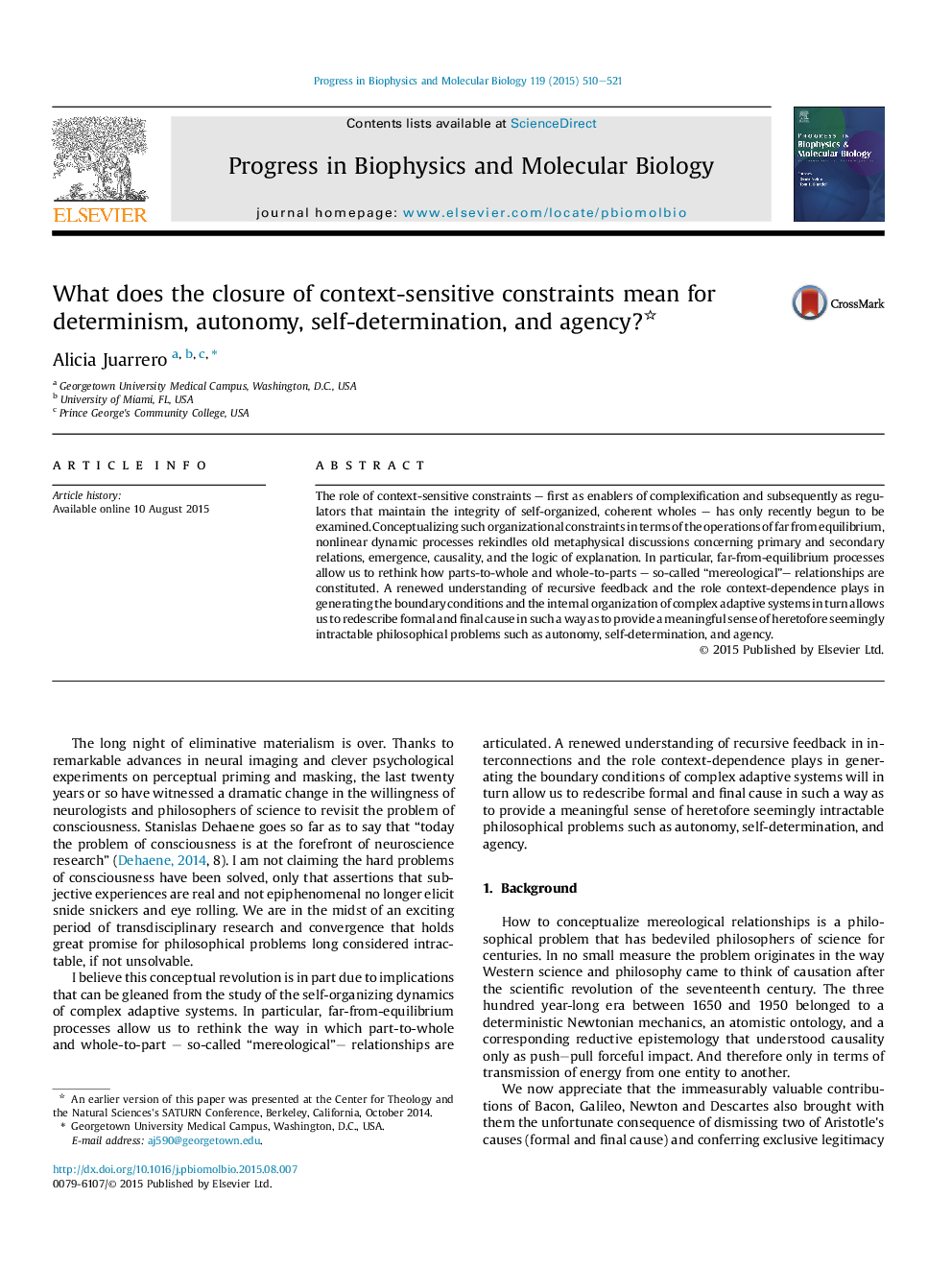| Article ID | Journal | Published Year | Pages | File Type |
|---|---|---|---|---|
| 2070102 | Progress in Biophysics and Molecular Biology | 2015 | 12 Pages |
The role of context-sensitive constraints – first as enablers of complexification and subsequently as regulators that maintain the integrity of self-organized, coherent wholes – has only recently begun to be examined. Conceptualizing such organizational constraints in terms of the operations of far from equilibrium, nonlinear dynamic processes rekindles old metaphysical discussions concerning primary and secondary relations, emergence, causality, and the logic of explanation. In particular, far-from-equilibrium processes allow us to rethink how parts-to-whole and whole-to-parts – so-called “mereological”– relationships are constituted. A renewed understanding of recursive feedback and the role context-dependence plays in generating the boundary conditions and the internal organization of complex adaptive systems in turn allows us to redescribe formal and final cause in such a way as to provide a meaningful sense of heretofore seemingly intractable philosophical problems such as autonomy, self-determination, and agency.
